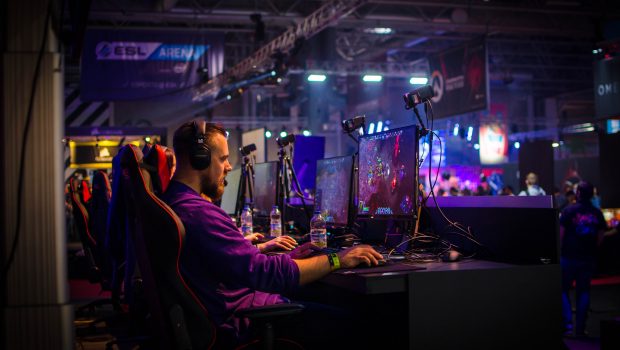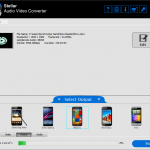Pre-built vs Custom PC: Which One Should You Buy?
One of the most common questions people ask when they’re looking to upgrade their system is whether to go for a standard pre-built PC or explore the custom PC options on the market. If you’re planning to buy a computer system soon, we tell you everything you need to know to make the right decision.
Price to Performance Ratio
When you’re buying a new computer, the first thing on your mind is likely price. You’ll often be restricted to a tight budget and it’s your goal to get the most bang for your buck. Pre-built PCs are sold in bulk by brands with the sole objective of improving the bottom line and profitability. Factors like labour cost, advertising campaigns and the salaries of the various people involved in the product’s life cycle increase the overall price of the machine.
Custom PC parts, on the other hand, are available on the market at lower prices, and you can often easily spend the same amount — or less — on these parts but get a much more powerful machine. That being said, that reduction in price does come at another cost — you need to assemble your custom PC parts to create a working PC. If you’re confident you can assemble your machine — or you know someone who can do it for you — you’ll have a PC with better performance without hurting your budget.
The Time It Takes to Get What You Need
Companies spend millions of dollars and hundreds of hours on technical research to design PCs that can meet all manner of requirements and needs, from intensive graphics design work to storage for data hoarders who need ample space for all their photos, videos and documents. However, when you buy a pre-built PC, whatever you intend to use it for, the experience is largely the same — you plug it in and power it up and then you’re ready to go.
When you buy a custom PC, however, it’s not a case of enjoying a seamless out-of-the-box, plug-and-play experience. You need to source all the essential parts, check their compatibility, assemble them and run multiple tests. This is all before you can actually use your PC for its intended purpose. This process can take a lot of time and it might be a hassle you just don’t need — especially if you have limited technical knowledge.
Customization
Now that computers are used for high-end gaming as well as technical tasks, personalisation is an important factor. Pre-built PCs come with certain features and specifications — ranging from the graphics card installed to the PC’s RAM (Random-Access Memory). If these built-in specs align with what you need from a PC, great. But if not, it might be time to consider looking at a custom option, unless, of course, you’re willing to up your budget to get a pre-built computer with a better spec.
When building a custom PC, you can upgrade various components, including RAM, SSD (Solid-State Drive), monitor size and graphics card. If you’re a hardcore gamer, for example, your standard pre-built machine won’t do. You’ll likely want a larger hard drive to store your games, a significant amount of RAM to ensure you don’t experience lag and freezing, and a top-of-the-range graphics card with dedicated memory to ensure you can play the latest games the way they were designed to be enjoyed. Likewise, if you’re a video editor, graphics designer or coder, you should consider a custom PC — not only to get the best for your budget but also to get the best full stop.
Technical Support
If your technical PC knowledge is a little lacking and you think you may require customer support to fix specific issues in the future, your best option is to go for a pre-built PC, as they typically come with a warranty of between one and two years. During checkout, you can usually extend this further for an additional cost. During this period, you’ll benefit from free technical support provided by the company, as well as repairs should your PC break. However, if you can confidently handle common technical issues by yourself, or you know someone who can, it’s well worth forgoing the technical support in favour of building a custom PC that will benefit you in all the ways outlined above.
Decide what you want more of — convenience, customer support and a quick fix or an exclusively designed machine built exactly for you and your needs. Once you’ve decided whether to go pre-built or custom, the fun really begins as you determine exactly what you want from your new PC.
Pre-built vs Custom PC: Which One Should You Buy?
One of the most common questions people ask when they’re looking to upgrade their system is whether to go for a standard pre-built PC or explore the custom PC options on the market. If you’re planning to buy a computer system soon, we tell you everything you need to know to make the right decision.
Price to Performance Ratio
When you’re buying a new computer, the first thing on your mind is likely price. You’ll often be restricted to a tight budget and it’s your goal to get the most bang for your buck. Pre-built PCs are sold in bulk by brands with the sole objective of improving the bottom line and profitability. Factors like labour cost, advertising campaigns and the salaries of the various people involved in the product’s life cycle increase the overall price of the machine.
Custom PC parts, on the other hand, are available on the market at lower prices, and you can often easily spend the same amount — or less — on these parts but get a much more powerful machine. That being said, that reduction in price does come at another cost — you need to assemble your custom PC parts to create a working PC. If you’re confident you can assemble your machine — or you know someone who can do it for you — you’ll have a PC with better performance without hurting your budget.
The Time It Takes to Get What You Need
Companies spend millions of dollars and hundreds of hours on technical research to design PCs that can meet all manner of requirements and needs, from intensive graphics design work to storage for data hoarders who need ample space for all their photos, videos and documents. However, when you buy a pre-built PC, whatever you intend to use it for, the experience is largely the same — you plug it in and power it up and then you’re ready to go.
When you buy a custom PC, however, it’s not a case of enjoying a seamless out-of-the-box, plug-and-play experience. You need to source all the essential parts, check their compatibility, assemble them and run multiple tests. This is all before you can actually use your PC for its intended purpose. This process can take a lot of time and it might be a hassle you just don’t need — especially if you have limited technical knowledge.
Customisation
Now that computers are used for high-end gaming as well as technical tasks, personalisation is an important factor. Pre-built PCs come with certain features and specifications — ranging from the graphics card installed to the PC’s RAM (Random-Access Memory). If these built-in specs align with what you need from a PC, great. But if not, it might be time to consider looking at a custom option, unless, of course, you’re willing to up your budget to get a pre-built computer with a better spec.
When building a custom PC, you can upgrade various components, including RAM, SSD (Solid-State Drive), monitor size and graphics card. If you’re a hardcore gamer, for example, your standard pre-built machine won’t do. You’ll likely want a larger hard drive to store your games, a significant amount of RAM to ensure you don’t experience lag and freezing, and a top-of-the-range graphics card with dedicated memory to ensure you can play the latest games the way they were designed to be enjoyed. Likewise, if you’re a video editor, graphics designer or coder, you should consider a custom PC — not only to get the best for your budget but also to get the best full stop.
Technical Support
If your technical PC knowledge is a little lacking and you think you may require customer support to fix specific issues in the future, your best option is to go for a pre-built PC, as they typically come with a warranty of between one and two years. During checkout, you can usually extend this further for an additional cost. During this period, you’ll benefit from free technical support provided by the company, as well as repairs should your PC break. However, if you can confidently handle common technical issues by yourself, or you know someone who can, it’s well worth forgoing the technical support in favour of building a custom PC that will benefit you in all the ways outlined above.
Decide what you want more of — convenience, customer support and a quick fix or an exclusively designed machine built exactly for you and your needs. Once you’ve decided whether to go pre-built or custom, the fun really begins as you determine exactly what you want from your new PC.










![E-Commerce Problems And Solutions Guide [Infographic]](https://technofaq.org/wp-content/uploads/2018/05/ecommerce-problems-and-solutions-guide-jordan-crown-150x150.jpg)






